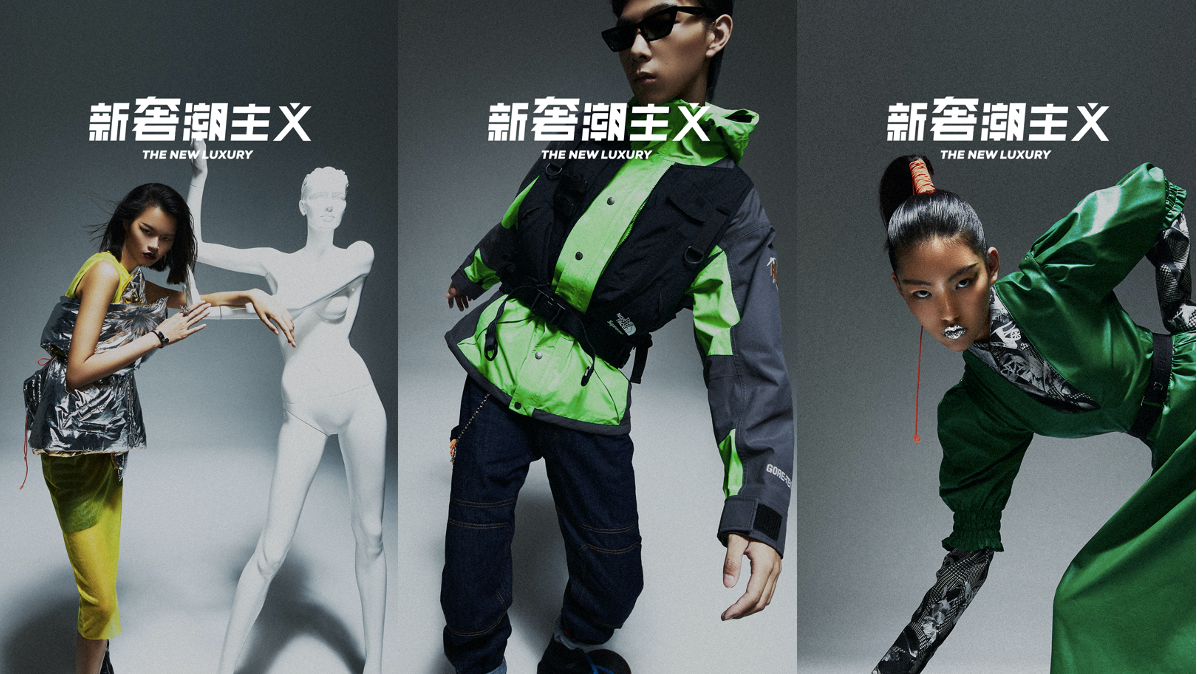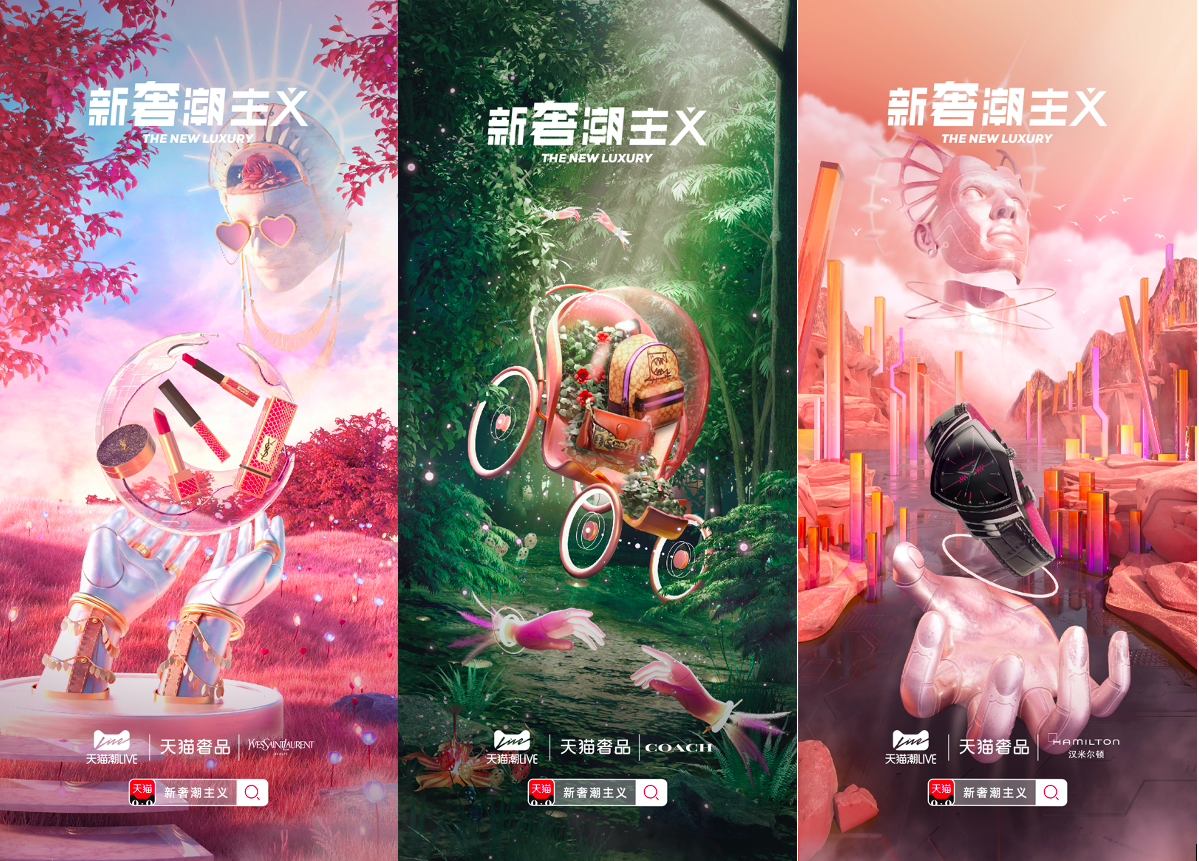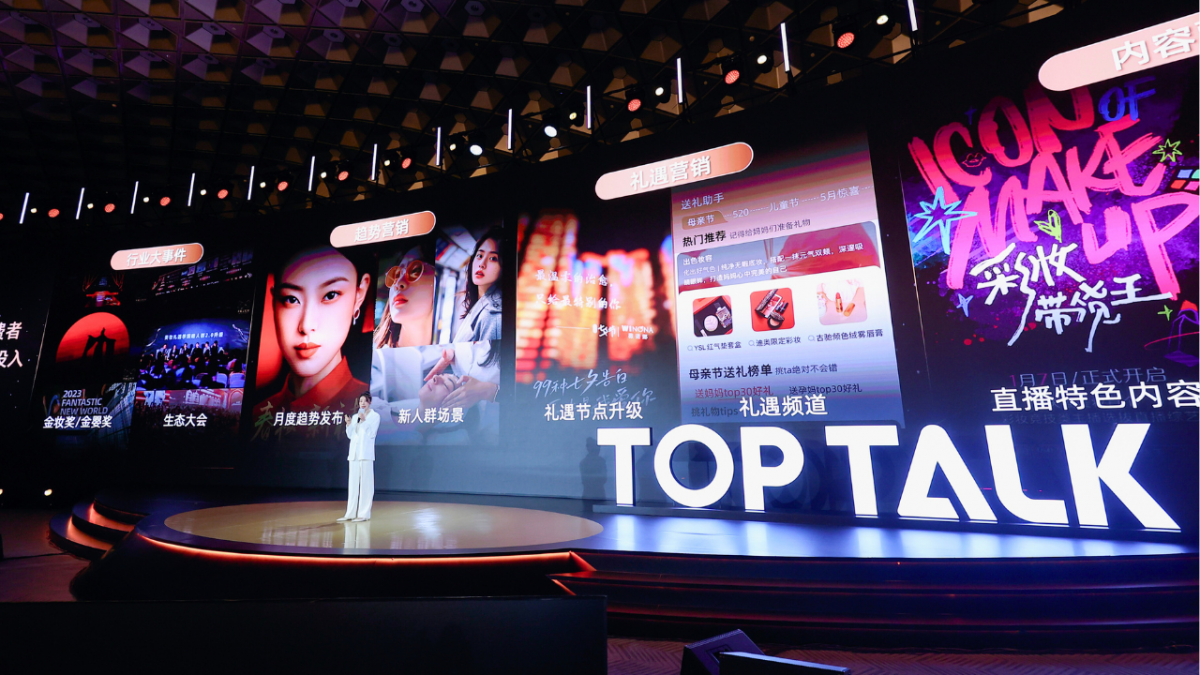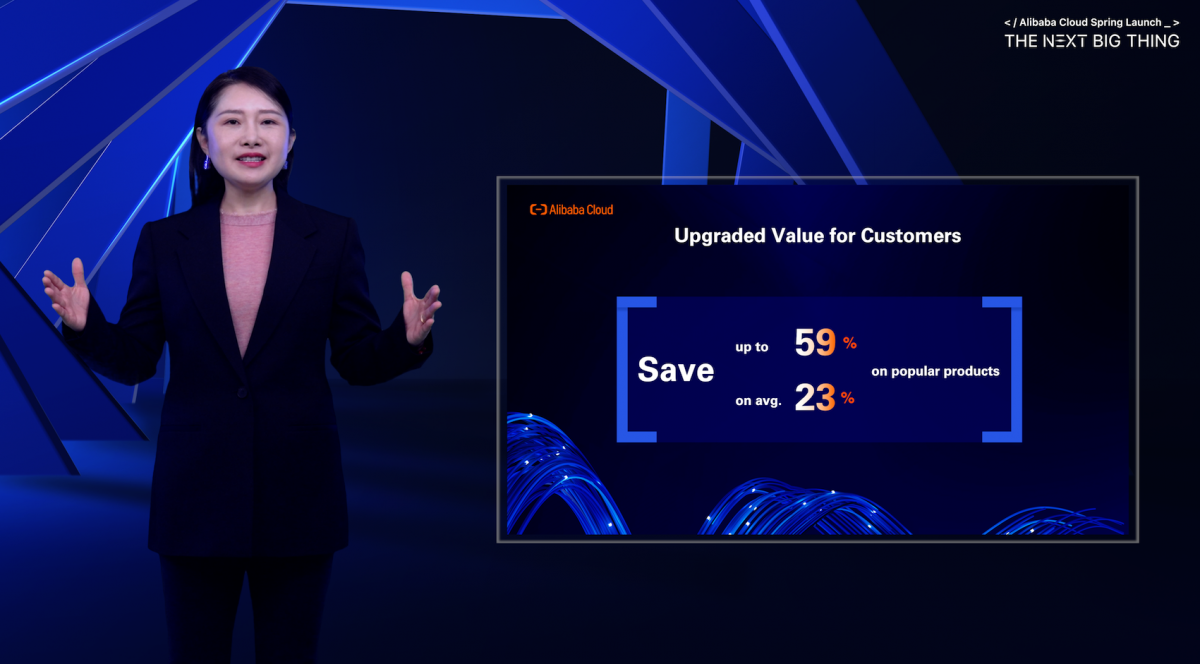
Alibaba Group on Monday unveiled plans to retool its luxury platforms, including Tmall Luxury Pavilion and Luxury Soho, as it gears up to help high-end brands reinvigorate their growth and connect with China’s Generation Z shoppers after Covid-19.
Gen Z, typically comprising those born between 1995 and 2010, is poised to dominate luxury spending. Management consultancy Bain & Company wrote in a recent report that the cohort could account for 40% of global luxury purchases by 2035, up from just 4% today. That growth is also reflected on Alibaba’s platforms in China, where about 80% of luxury consumers are 35 years old or younger, and the fastest-growing segment is even-younger shoppers between 18 and 25 – a group that last June more than doubled in size from a year earlier.
Under the banner of “New Luxury,” Alibaba has rolled out a series of content-marketing tools and interactive experiences to help brands sharpen their appeal to China’s Gen Z. The new solutions include a shoppable, digital magazine titled Soho Mag; a luxury-specific livestreaming service, Soho Live; augmented reality and 3D-enabled features; and “cloud pop-up shops,” among other upgrades. The company also unveiled an elevated, multi-tiered customer-loyalty program to help luxury brands offer premium experiences to their most valuable customers.
WATCH: Alibaba’s “New Luxury” sneak peek
“By providing Tmall’s unparalleled analytics and insights on luxury consumption in China, we empower luxury brands with a deeper and more accurate understanding of local consumer preferences,” said Mike Hu, Alibaba Group vice president and head of Tmall Luxury, Fashion and FMCG.
“These insights allow luxury brands to precisely tailor their communications to Chinese young audiences while staying true to their brand identities,” he added.
This is the latest move from Alibaba to bolster its luxury sector business as China emerged from its Covid-19 lockdown. In May, the company launched Luxury Soho to help brands manage excessive inventories and stock – an issue compounded by the virus. Brands such as Coach, Theory and Moschino have since used the new channel to bring their products in front of younger, value-conscious luxury shoppers.
Come for the Novelty, Stay for the Experience
“We are not only seeing an increasing number of top luxury brands joining Tmall, but more and more brands are also innovating and finding breakthrough success on our platforms,” said Luna Wang, who heads Tmall Luxury. She said a key focus this year is to further elevate the digital experience and help brands “bring their top-of-the-line, exceptional services to consumers, both online and offline.”
One way it’s looking to do that is through its newly upgraded customer-loyalty club. Consumers who have respectively spent over RMB10,000 ($1,447) and RMB25,000 ($3,617) on the Tmall Luxury Pavilion in the past year are now eligible for Gold and Black membership cards. Brands can partner with the platform to offer special VIP rewards to these high spenders. These may include exclusive gift sets, invitations to the brands’ offline events and priority access to new products and deals. Danish audio company Bang and Olufsen, for example, will broadcast an exclusive livestream this Friday for members, who will have a chance at winning the brand’s headphones as well as private access to its in-store cinema.



Tmall Luxury has also expanded its suite of innovative content-marketing solutions to help brands better connect with Gen Z shoppers. Last week, ahead of Chinese Valentine’s Day, it launched an immersive pop-up feature, which took online shoppers on a journey into fantasy worlds represented by different brands, including Balenciaga, Valentino, Hugo Boss, AMI Paris, Hamilton, Coach and Yves Saint Laurent Beaut√©. Consumers could enter these virtual worlds to explore the brands and their newest products. The three-day online pop-up shop was created in collaboration with Tmall Live Chic, a marketing unit that creates co-branded campaigns aimed at China’s stylish, trend-loving Gen Z.
Putting Consumers at the Center
With traveling still reduced and restricted amid Covid-19, China’s luxury consumers – including those living in lower-tier cities – have been increasingly turning toward online channels such as Tmall Luxury Pavilion to shop, said Wang.
“There is no better place in the world than China to tell your brand story, thanks to the ecosystem that has already been in place,” said Mauro Maggioni, Asia-Pacific CEO of Italian high-fashion brand Golden Goose, which launched on the Pavilion earlier this month. Maggioni added that the readiness of Chinese consumers to embrace digitization has empowered the company to connect with shoppers virtually even throughout the lockdown. “The boundaries are no longer the shopping mall, the city or the province. The boundaries are the consumers, so a consumer-centric strategy is of paramount importance.”
Being on a digital platform such as Tmall allows Golden Goose to talk to consumers across China about the brand’s integrity, craftsmanship and its versatile range of products as well as grow in a way that ensures both quality and quantity, Maggioni said.
Launched in 2017, Tmall Luxury Pavilion now offers nearly 200 luxury and designer brands, including Cartier, Burberry, Valentino, Golden Goose, MCM, Maserati, Qeelin, Kenzo, Tag Heuer and Zenith. Last September, Swiss luxury group Richemont’s e-commerce platform Net-a-Porter opened a flagship store on the platform, giving Pavilion shoppers access to products from labels such as Chlo√©, Balmain, Jimmy Choo and Tom Ford.
Sign up for our newsletter to receive the latest Alibaba updates in your inbox every week.




